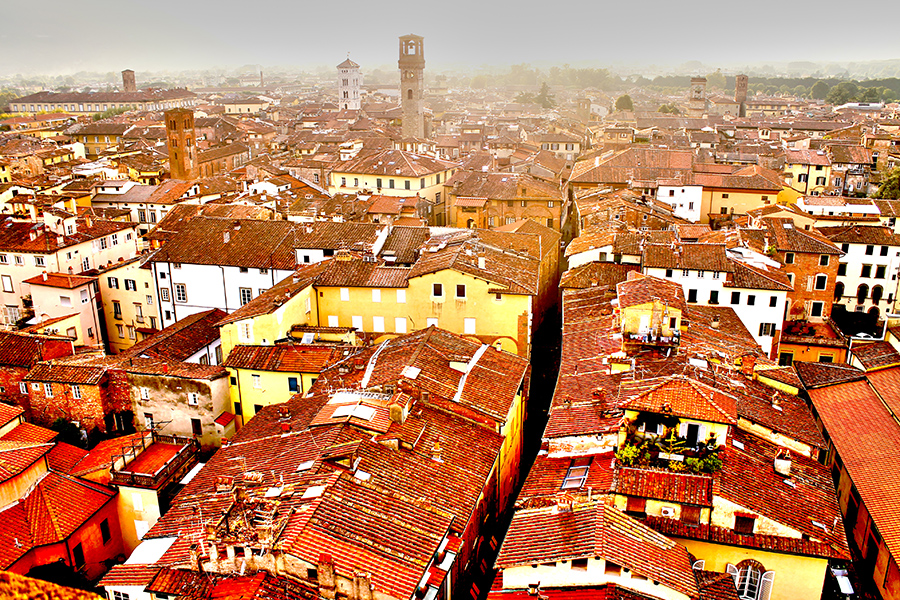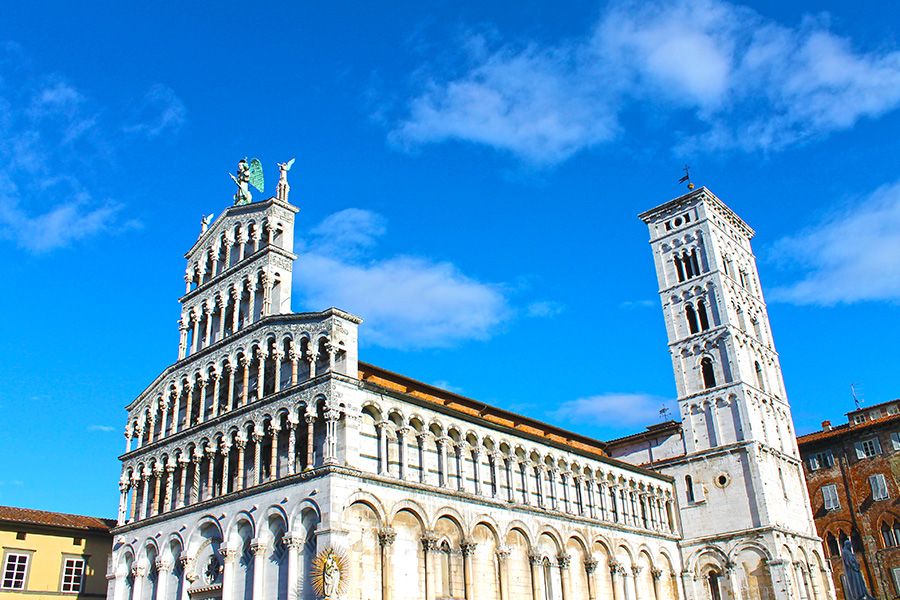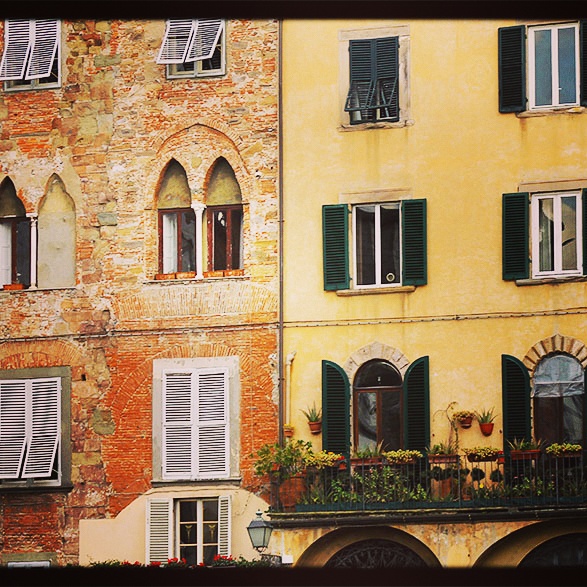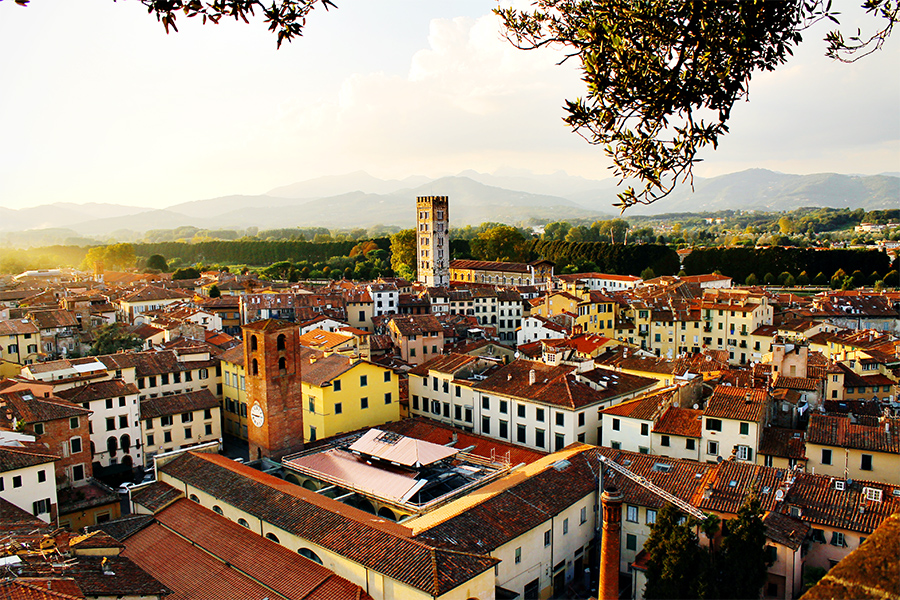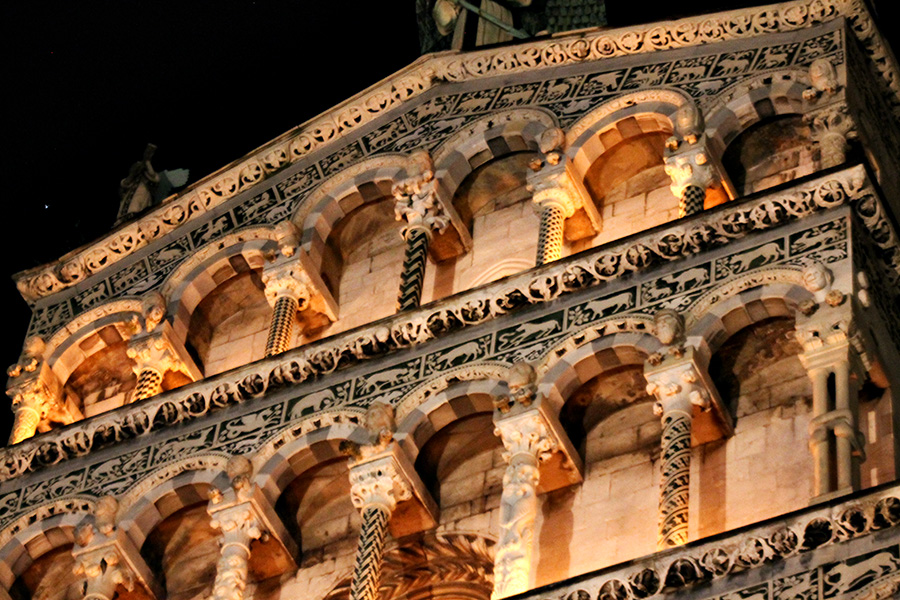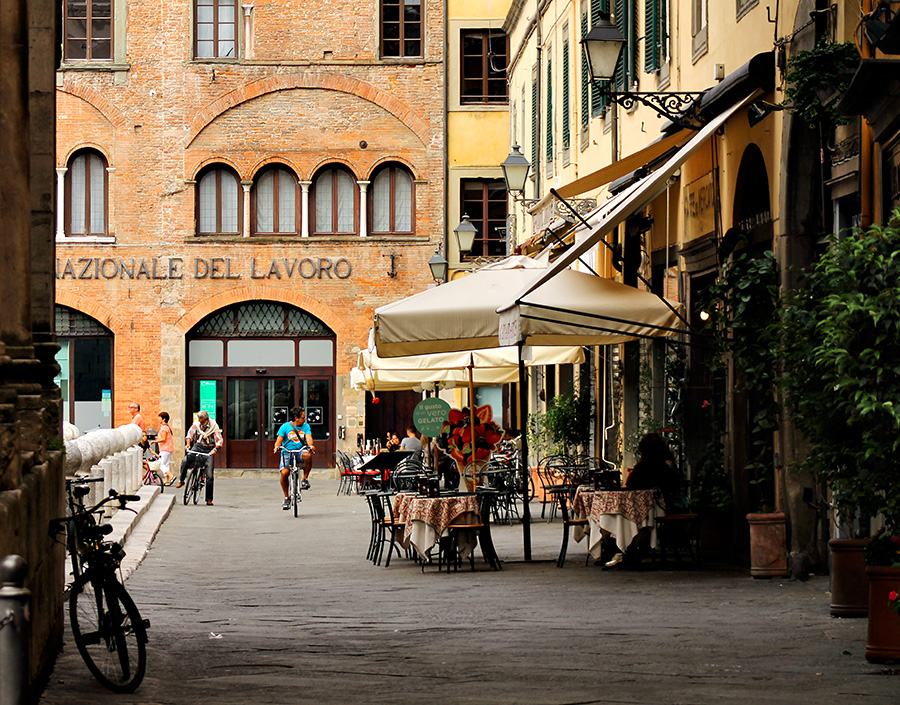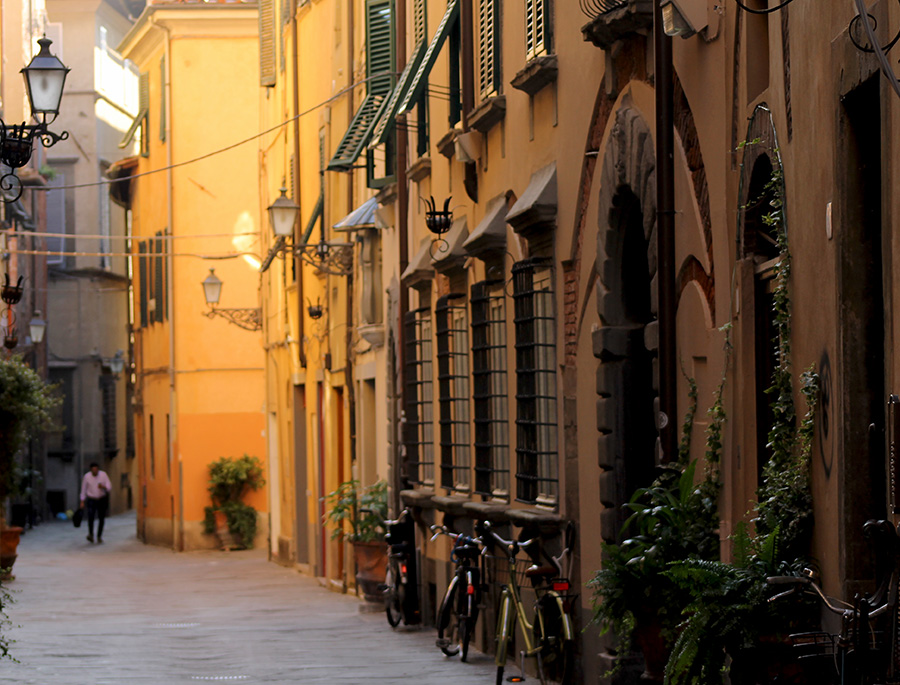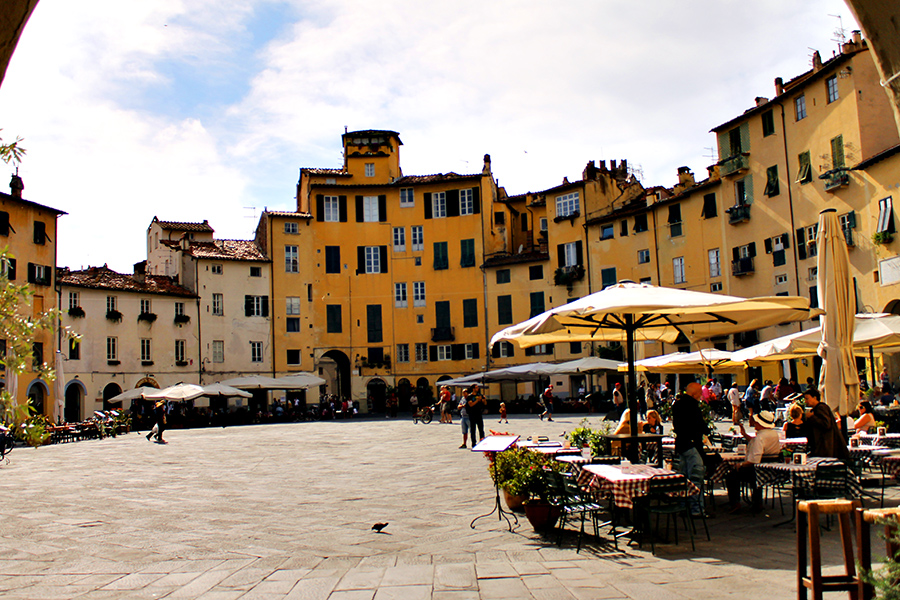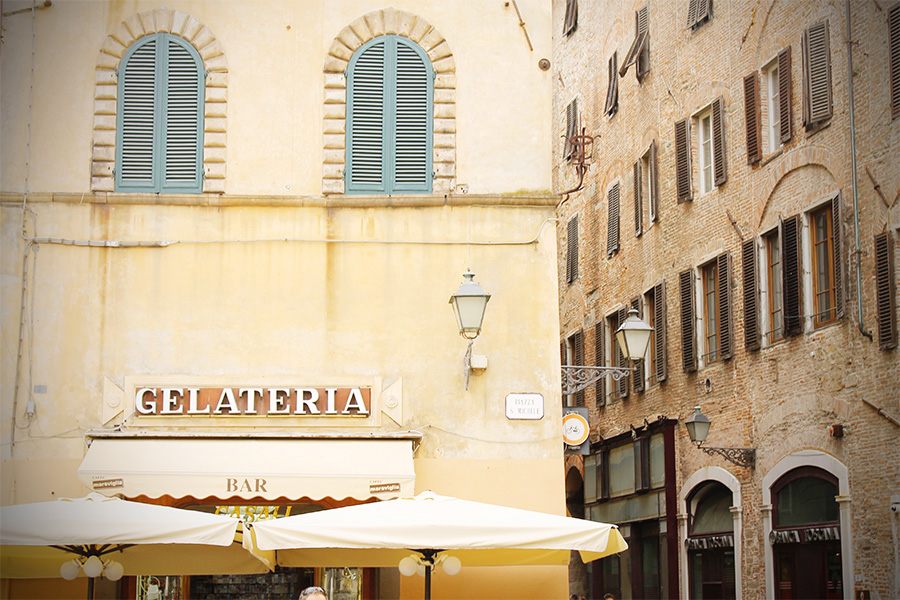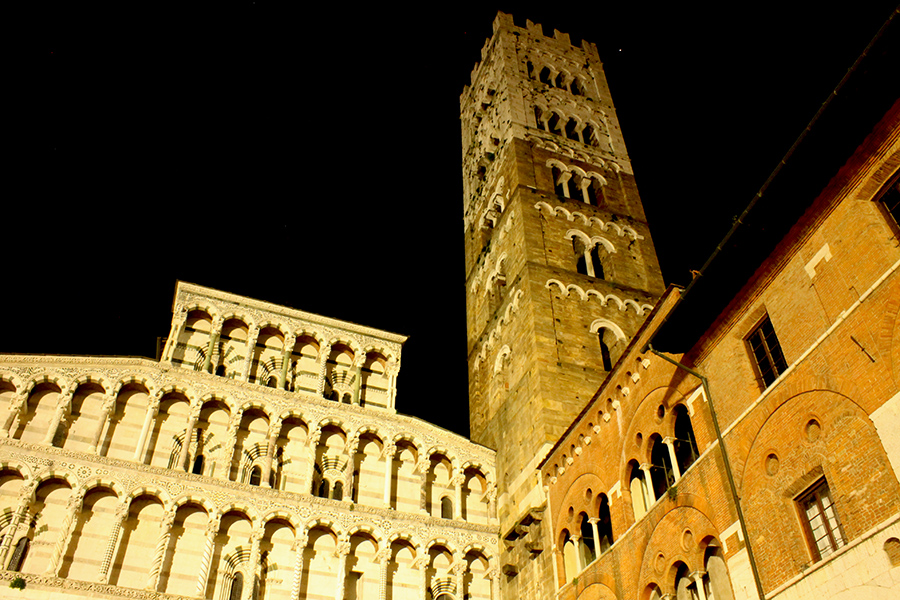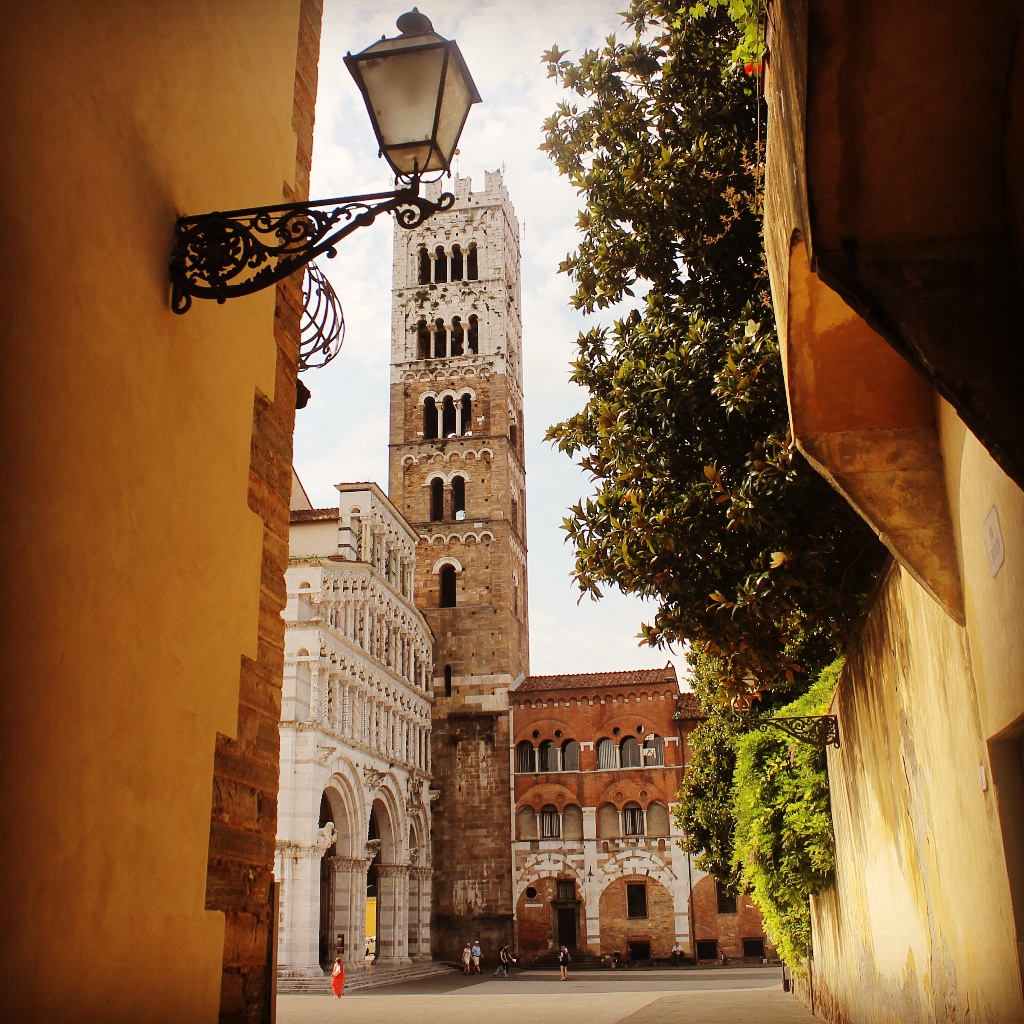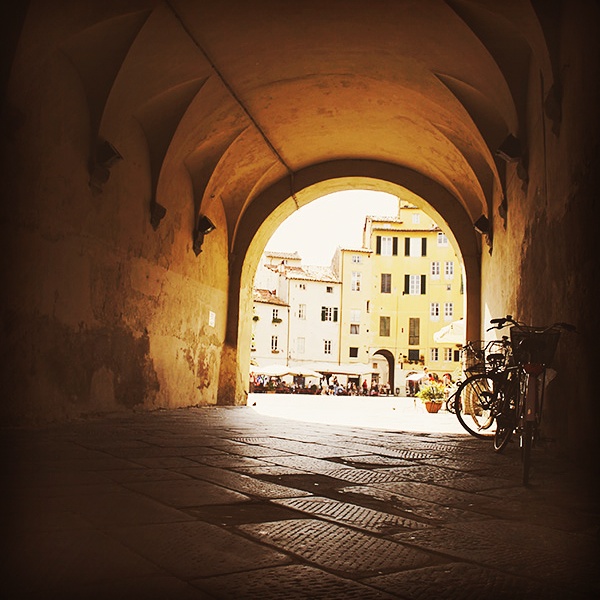Auditorium – Agora Cultural Centre
Via delle Trombe, 6 (Piazza dei Servi, Centro Storico) 55100 Lucca Tuscany, ItalyConference Program
- September 28, 2018
- 09:00 - 09:30Participants Registration (Registration Desk)
- 09:30 - 10:30Welcome and Opening Remarks Opening Workshop: Europe Exposed to Plural Observers: Past, Present and Future
- 10:30 - 11:00Coffee Break
- 11:00 - 13:00Panel 1: Thinking Europe: Philosophy, Autonomy, Culture and Identity Formation through Inclusion/Exclusion Nexuses
- 13:00 - 14:30Lunch –Restaurant
- 14:30 - 16:30Panel 2: European Cultural Heritage (Section One): Regional, National and European Imaginary Significations of Magmatic Cultural Creation
- 16:30 - 17:00Coffee Break
- 17:00 - 19:00Panel 3: European Values and Europeanization: Migration and Asylum Policies, Alterity Making Practices and the Geographies of Orientalism
- 19:00 - 19:45Aperitivo & Welcome Drink Out in Lucca
- 19:45 - 21:00Optional Social Dinner Out in Lucca
- September 29, 2018
- 09:00 - 11:00Panel 4: Reinventing Eastern Europe: Europe, the EU and the Est / West Dichotomies in Identity Making Practices
- 11:00 - 11:30Coffee Break
- 11:30 - 13:30Panel 5: Urban Transformations, Transition and Change in European Urban Image Construction
- 13:30 - 15:00Lunch –Restaurant
- 15:00 - 17:00Panel 6: European Cultural Heritage (Section Two ): History, Identity Making and Cultural Influence
- 17:00 - 17:30Coffee Break
- 17:30 - 19:30Panel 7: Art History and Identity Making Practices from European Paintings to External Representations in Sequential Art
- 19:30 - 20:30Optional Social Dinner Out in Lucca
- September 30, 2018
- 09:00 - 09:30Sunday Morning Coffee
- 09:30 - 10:30Closing Session: Final Discussion
- 10:30 - 13:00Site of European Cultural Heritage: Lucca – Walking City Tour
- September 28, 2018
Europe Inside-Out: Europe and Europeanness Exposed to Plural Observers (8th Edition)
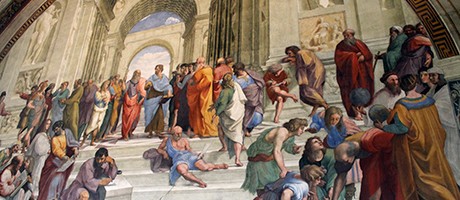
- Conference Description
- Participant’s Profile
- Registration and Fee
- Social Activities and Publication
- Important Dates
- Venue and Directions
- Conference Program
- Panel 1
- Panel 2
- Panel 3
- Panel 4
- Panel 5
- Panel 6
- Panel 7
The 8th Euroacademia International Conference
Europe Inside-Out: Europe and Europeanness Exposed to Plural Observers
28 – 30 September 2018
Agora Cultural Centre, Lucca, Tuscany, Italy
Conference Description:
Europe became in the 20th century an elaborated yet contested notion as a particular field of European studies emerged, and extensive and diverse research was directed recently towards an intensified search for what Europe is about. The creation of the European Union made things even more specialized and increased the stake of methodological rigor as more and more Europeans are affected by the decisions taken in Brussels. The number, diversity and quality of research projects focused on European issues is unprecedented, yet, as it is usually the case with specialization, it gradually led to discursive communities that rarely meet and debate their approaches in open floors together with peers from other continents, disciplines, academic traditions and cultures. It is the aim of this conference to build a bridge among specialists from different backgrounds, regions, academic traditions and cultures that share a common interest in studying and addressing Europe as a reflexive concern.
The 8th Global Conference ‘Europe Inside-Out: Europe and Europeanness Exposed to Plural Observers’ aims exactly to refresh a broader approach and understanding of Europe by enlarging the platform of regular conferences and workshops for a wider arena of participants and disciplinary backgrounds in order to put on stage a worldwide monadology for such concerns. It is an intellectual event that addresses constructive thinking. The conference aims to enable critical alternatives to the disciplinary orthodoxy by creating a framework for interaction and dissemination of diversity that has to become once more a European trademark. The conference also aims to become a constructive confrontational space for alternative methodologies, provocative puzzles, inter, multi and trans-disciplinary understandings for wider and also for thinner specialized issues of concern on or about Europe of today and tomorrow. In a way, the conference stands to become a moment of return to the European specificity of critical self-understanding through dialogue and debate with all the discursive or narrative traditions that directly or indirectly constitute Europe in its plural facets.
What is Europe and its place in the world? Is there something particular that sediments in time a ‘European way’? How does Europe see itself and how do others see it? Is Europe inclusive or club-based exclusive? Is Europe becoming a normative power or just envisages itself as one? Is the European multiculturalism a fact or an ideal? Is the European Union a reflection of Europe or an appropriation of it? Is European unity a fact or an illusion? Is Europe heading towards a post-national cosmopolitan order or returning to a Europe of nations? What is the European identity? These are just few questions out of an enormous space for inquiry that are to be addressed and confronted within the topic of the conference.
The Euroacademia International Conference ‘Europe Inside-Out: Europe and Europeanness Exposed to Plural Observers’ became a regular event to take place in every year in a different European location in order to immerse participants in the European culture and identitarian loci. After seven successful editions – in Vienna, Paris, Prague, Athens, Barcelona, Nice and Porto – Euroacademia moves the stage of reflection, sharing, dialogue, debate and research dissemination on Europe to Lucca, in the heart of Tuscany. Join us!
Participant’s Profile
The conference is addressed to academics, researchers and professionals with a particular interest in Europe, Europe related and European Union topics from all parts of the world. As the nature of the conference is intended to be multidisciplinary in nature, different academic and intellectual backgrounds are equally welcomed. Cultural approaches, political studies, critical studies, out of mainstream approaches and artistic/literary contributions to the better understanding of Europe in its past present and future dimensions are all equally welcomed. Euroacademia favors inclusive alternative and innovative thinking proposals and non-mainstream methodologies.
Post-graduate students, doctoral candidates and young researchers are welcomed to submit an abstract. Representatives of INGOs, NGOs, Think Tanks and activists willing to present their work with impact on or influenced by specific understandings of Europe and/or the European Union are welcomed as well to submit the abstract of their contribution.
Abstracts will be reviewed and the participants are selected based on the proven quality of the abstract. The submitted paper for the conference proceedings is expected to be in accordance with the lines provided in the submitted abstract.
Registration and Fee
REGISTRATION PROCESS IS NOW CLOSED
The Registration Includes:
- the registration fee
- official invitation
- full access to the conference proceedings
- participant’s dedicated package with all the materials for the conference
- eligibility for inclusion in the conference proceedings published volume
- a copy of the electronic volume
- access to Euroacademia discussion group and newsletters
- coffee brakes with snacks and refreshing drinks for all the duration of the conference
- 3 course Tuscan specialties lunch on 28th of September 2018
- 3 course Tuscan specialties lunch on 29th of September 2018
- Tuscan ‘aperitivo’ welcome drink on 28th of September 2018
- Optional walking tour of Lucca on 30th of September 2018
- certificate of attendance
- access to the optional social program
Unfortunately, Euroacademia has no available funds for covering transport and accommodation to/in Lucca. Participants are responsible for securing funding to cover transportation and accommodation costs during the whole period of the conference. Official invitation letters can be sent by Euroacademia to the financing institution to confirm the selection and participation in the conference upon request.
Social Activities and Publication
A specific spot in the conference program will be dedicated to social networking and therefore all the participants interested in setting or developing further cooperation agendas and prospects with other participants will have time to present and/or promote their project and express calls for cooperation.
A specific setting (Social Corner) for promotional materials connected with the topic of the conference will be reserved for the use of the participants. Books authored or edited by the participants can be exhibited and promoted during the whole period of the conference and can also be presented within the conference package based on prior arrangements.
Photos and videos will be taken during the conference and the organizers will consider through the participation of selected presenters or members of the audience that the agreement for being photographed or filmed during the event was granted through registration to the event. Please notify the organizers in written form prior to the the event if you are a confirmed participant and would prefer otherwise.
An optional dinner and a social event will be organized for each evening of the conference in a typical Tuscan cuisine restaurant, as optional program for the willing participants. The social dinner will be held based on participant’s confirmation and will be covered individually by participants on spot.
Publication:
Selected papers are eligible to be published in an electronic volume with ISBN or paperback thematic volumes after the confirmation of the authors and a double peer-review process based on an agreed publication schedule after the event. All the papers selected for publication should be original and must have not been priory published elsewhere. All participants to the conference will receive a copy of the volume.
Specific selected papers will be also eligible to be published in CEJISS (Central European Journal of International & Security Studies)
About CEJISS
Formally launched in January 2007, CEJISS is designed as a double-destination scholarly bridge. The first bridge was constructed with Central Europe (Czech Republic, Hungary, Poland and Slovakia) in mind, focusing on increasing the audience for Central European scholars. In this regard, CEJISS is making a substantial impact as each issue attracts attention in some 45,000 people in nearly 160 countries. However, CEJISS is not Central European centric and invites scholars from around the world to contribute. This has meant that just as Central European scholars now have an easier time gaining a footing outside of the region, so international scholars also have an easier time getting in and making an impact here. With a mere two decades separating our times from the ‘darker’ Cold War years, CEJISS aims to contribute English language perspectives to the peoples of Central Europe and give the latter the amplification their research deserves.
| Important Dates | |
|---|---|
| 15th of June 2018 | Deadline for Submitting Panel Proposals |
| 15th of July 2018 | Deadline for Submitting Paper Proposals |
| 16th of July 2018 | Final notification of acceptance |
| 20th of July 2018 | Sending the Registration Form |
| 27th of July 2018 | Payment of the conference fee |
| 10th of September 2018 | Sending the draft paper to be uploaded on the conference website |
| 15th of September 2018 | Publication of the conference program and uploading the draft papers on the website |
| 28th of September 2018 | The conference commences at 9.00 am |
Venue and Directions
The proceedings of the conference will take place in the Auditorium of the Cultural Centre Agora in Lucca. The Auditorium is part of the Convento dei Padri Serviti built around 1300 by the order of Servi di Maria.The Auditorium is the restructured space of the Oratory of S. Lorenzo, built in 1480, but whose structure and interior was renovated without changes or interventions. A former church now de-consecrated, the Auditorium preserves all its historical architecture and features. The space above the area of the former altar includes a fresco of Guidotti, a well known painter from 1600, that represents the miracle of San Silao. The location of the event is centrally situated right in the heart of Lucca, few steps away from the San Martino Cathedral of Lucca, Piazza San Michele with its beautiful San Michele in Foro church and the renaissance walls that surround the historical city, making easily accessible within a walking distance any part of its amazing Middle Ages or Renaissance treasures. Via delle Trombe, 6 (Piazza dei Servi, Centro Storico) Lucca is one of the most beautiful cities of Tuscany, a treasure of beauty, culture and history, preserving exquisitely the signs of past kingdoms and dominions, the beauty of nature and the works of many renown architects and artists. Dante spent a part of his exile in Lucca. Located between Florence and Pisa, Lucca is the home town of Giacomo Puccini and Luigi Boccherini. Is a town where each of the streets has a story to tell. The city walls are the best preserved Renaissance walls in the world, offering the opportunity of a relaxing and enchanting ‘passeggiata’ (promenade) or a bike ride with amazing views over the surroundings. Piazza Napoleone -one of the main squares – was built in the time of Napoleonic conquest when the city was led by Napoleon’s sister Elisa Bonaparte. It is rivaled in beauty by Piazza del Amfiteatro, built to maintain the shape of the Roman Amphitheater built during the I and II centuries that could accommodate over 10,000 spectators. A city of 100 churches, Lucca is labyrinth of small streets that hide secrets to be discovered.
Agora Cultural Centre
55100 Lucca Tuscany, Italy
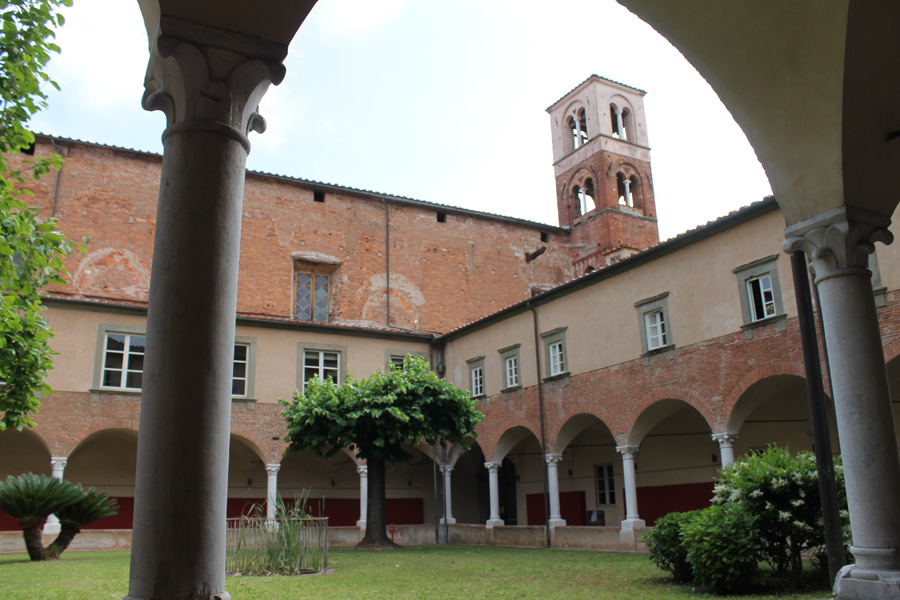
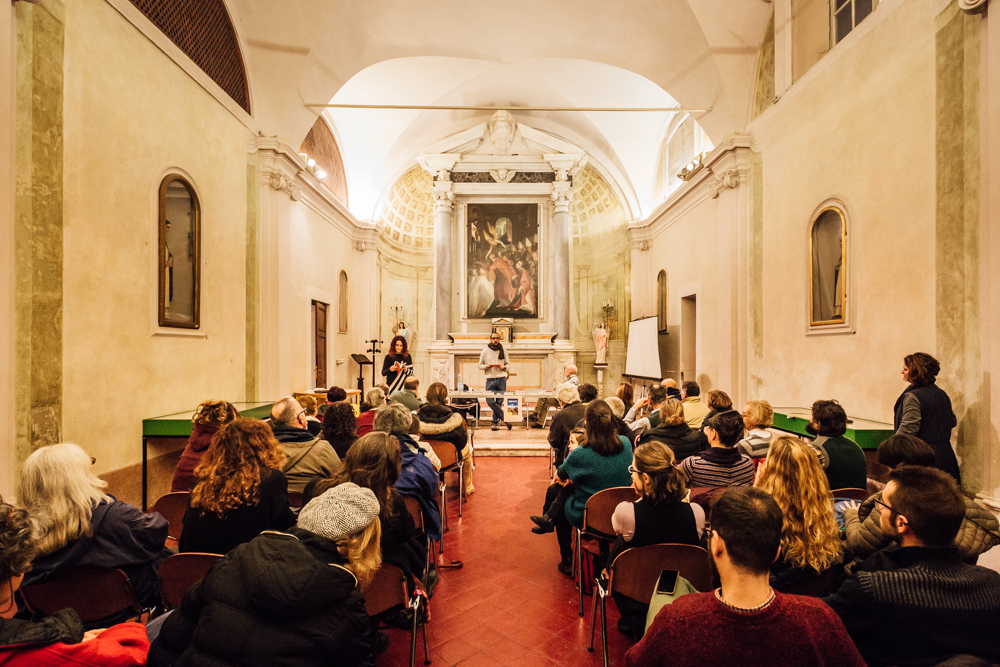
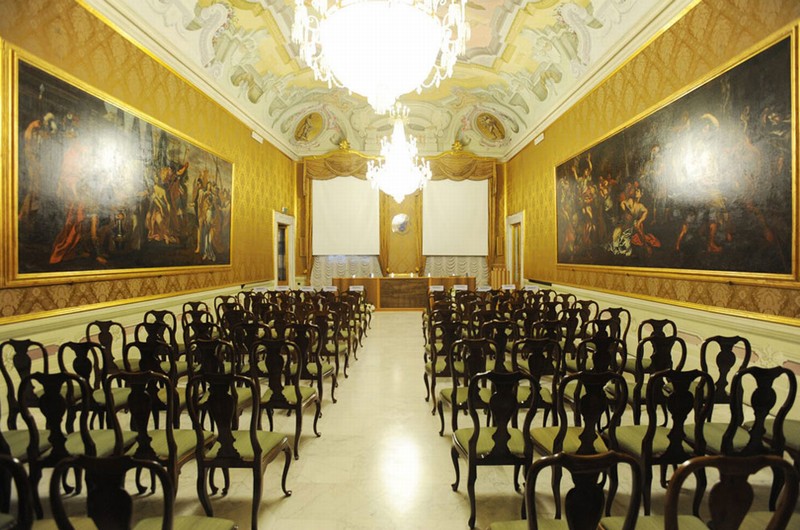
Lucca is very easy to reach both by bus as well as train from both Pisa and Florence, making it perfect for anyone getting around solely on public transportation. The train station is right outside the southern walls, with an entrance below the balcony of San Colombano that brings you right behind Lucca’s cathedral and into the heart of the small walled town. When arranging your travel by plane, book a flight to Florence (Petrola) or Pisa (Galileo Galilei) airports. The easiest way to reach Lucca is from Pisa airport that requires a 25 minutes public bus or train travel right from the airport. From Florence the travel by bus or train takes about 50 minutes. Make sure that your flight arrives earlier during the day as after 22.00 buses or trains to Lucca are no longer available. Taxis are available in Pisa airport and will cost around 50 Euro until your destination in Lucca. If your flight arrives later in the night, book a room for the night in either Florence or Pisa, and start your travel to Lucca in the morning since buses and trains are available from 5.30.
See an interactive map:
HERE
Conference participants are fully responsible for arranging the accommodation and travel to Lucca.
Conference Program
The Conference Agenda is available in the right sidebar of this page.
The extensive conference program with abstracts and available draft papers is now in process of uploading and will be accessible below by clicking on the panel number tabs and links of individual presentations. Due to technical times required by upload, a delay in the visibility of the program will occur. We apologize for inconvenience.
Thinking Europe: Philosophy, Autonomy, Culture and Identity Formation through Inclusion/Exclusion Nexuses
- Europe Is Elsewhere: Voices from the Edge of EmpireEmerging as a highly contested notion, Europe, on the one hand, is conceived as the agent of ‘Empire’ and, on the other, as the last and most muscular bulwark against it—or it is even employed in both senses simultaneously. My paper will analyze these dynamics of identity construction by exploring common themes among the voices from the colonialized edges of ‘Empire,’ such as Daniela Dahn, Emir Kusturica, Pankraj Mishra, Dipesh Chakrabarty and Vasant Kaiwar.Evelyn Preuss, Yale University, USA
- Thinking Europe: European Identity and the EnmityIt is possible to identify the general practice about the means through which enemy images have been built in the history, and what is still a widespread practice taken advantage by the media and political power groups. In addition, the enemy images have been used to form identities of different social groups, a sense of togetherness, since the identity bases on idea of hostility of other. From this perspective is possible also to survey the question of European identity.Sanna Kristiina Salo, University of Oulu, Finland
- Between the Universal and the Particular: Europe and the Ethical Commitment of Stefan ZweigThis paper will argue that, in order to make the most out of Zweig’s commitment, we have to change the way we approach his legacy. That is to say, instead of trying to convert his ideas into a political discourse, we should approach them from the perspective of their ethical value. Therefore, behind Zweig’s ‘Europe’, we will find a set of notions and principles—individualism, freedom, difference/diversity, pacifism, humanism, empathy, cosmopolitanism...—that go beyond Europe itself to form a Weltanschauung that may helps us figure out both our lives in common and as individuals.David Fontanals Garcia, Department of Modern Languages and Literatures and English Studies, University of Barcelona, Spain
- The Perceptual Experience of Past and Present ConsciousnessIn this paper, I substantiate Merleau-Ponty’s argument that when ‘my being and consciousness’ unite together, then I am not ‘reduced to knowledge;’ rather, I am one with consciousness; and my ‘consciousness of existing’ participates with the genuine ‘gesture’ of existence itself. I call humankind to action in unlocking the primary perception of both the past and the future interconnected to the present event of subjectivity so as to avoid the duality of being behind a nationalism of isolation.Gale Richardson, Institute for Doctoral Studies in the Visual Arts, Portland, Maine, USA
European Cultural Heritage (Section One): Regional, National and European Imaginary Significations of Magmatic Cultural Creation
- Staging/Inventing Nations: Art, Renaissances and Identities of Patrimony in Early 20th-century EuropeThis paper explores key, yet narratives of European cultural heritage in creating new national and transnational identities, from the late 1890s to the early 1900s. Discussion focuses in particular on the neglected importance of Germanic pre-modern and Renaissance projections of a diverse cultural inheritance, looking at significant ways via their revivals, displays and reinventions in ‘tournant de siècle’ Europe were to shape amplified ideas of ‘national’ patrimony.Juliet Simpson, Faculty of Arts and Humanities, Coventry University / Wolfson College, University of Oxford, UK
- Minority Arts and Heritage: Border Work and Contact ZonesHeritage expressed through the arts is a process of cultural production and active ‘making’ of individual and community senses of diversity. The paper critically inspects this as a performative and affective process by which minoritised people use ideas about the past or traditions to express creatively their place within the world, and strategically assert their voices in the public sphere. Particular attention is paid to the ways that heritage-making through the arts acts as ‘borderwork’ located outside of mainstream museums and arts organisations: as boundary-making or as contact zone or as engines of connectivity.Susan Ashley, Northumbria University, UK
- How Local Is Local Heritage? A Case Study of the County of LincolnshireThis paper will argue that whilst there appears to be a current rejection of Europe and Europeans by local people in Lincolnshire, they live in a county that owes much of its rich heritage to people from countries that are currently part of Europe. It is intended that this will be the first part of a study to explore the disconnect between the European influence on their heritage and current views about Europe and European migration in the county.Abigail Hunt, Lincoln Business School, University of Lincoln, Brayford, UK
- Debating Europe: Participation in the EU’s Cultural Heritage PolicyThis paper is therefore based on ethnographic fieldwork conducted in 2017-2018 at 11 heritage sites that have received the European Heritage Label. The material includes interviews with EHL actors at different levels of administration, the visitors and the locals. It is analyzed through a conceptual approach, with a theoretical framework drawing on critical heritage studies and participatory governance research. The aim is to explore the conceptions of participation in the discourses of different level EHL actors, the visitors and the locals.Katja Mäkinen, University of Jyväskylä, Finland
European Values and Europeanization: Migration and Asylum Policies, Alterity Making Practices and the Geographies of Orientalism
- Lost at Sea? Exploring Europeanisation and De-Europeanisation in Turkey’s Migration and Asylum PoliciesBased on a theoretical approach to Europeanisation and de-Europeanisation in candidate countries, the paper analyses developments in Turkey's asylum and migration policies in recent years. Given the lack of credibility of accession conditionality in the Turkish case, and a general tendency towards de-Europeanisation in Turkey, overwhelming de-Europeanisation in this area may be the expected outcome. However, as this paper argues, the reality is considerably more complex.Catherine MacMillan, Yeditepe University, Istanbul, Turkey
- The Impact of Europeanization on Turkish Asylum Policy Through ConditionalitySince the conflict began in 2011, an estimated 5 million people have fled Syria by land and sea in order to survive. Turkey has become a transition point for Syrians to reach Europe because of its geographic status between east and west. Not only the strict border protection implied by the EU but also the readmission agreement have transformed Turkey into an inn for Syrian refugees. his paper has two main aims. While analyzing the transformation of Turkish asylum policy in the light of Europeanization, the bound between the conditionality and the Europeanization would tried to be determined.Asli Bilgin, Faculty of Law, Cukurova University, Adana, Turkey
- Integrating European Identity: A Massive Challenge for the EU after Migration CrisisThis study aims to explore the term of “European Identity” through the integration policies of the European Union. The main argument of the study is that the “European Identity” is dominated by economic neoliberal understanding as many integration policies are focused on financial integration. Prioritization of economic concerns also creates a challenge for the idea of common European identity; therefore, the study also argues that the idea of European identity is a highly contested and illustrative concept. In this pursuit, the first part of the study focuses on the theoretical framework of European Identity and its conundrums.Ufuk Can Aksu, Independent Researcher, Sanliurfa, Turkey
Reinventing Eastern Europe: Europe, the EU and the Est / West Dichotomies in Identity Making Practices
- Europe from the East and the West Regarded from 1968 and 1989 MomentsAn irony of history, that 1968 which is an emblem for the radicalism and revolution in Western hemisphere and certain extent in the Eastern bloc too, for Hungary went into the history as associated with a “good bargaining” giving autonomy in foreign policy to the Soviets for receiving internal autonomy –for a while- in economic and social affairs, so a moment of world history of radicalism is a momentum of reformism and of clever opportunism in Hungarian history.Máté Szabó, Institute of Political Science, Eötvös Loránd University, Hungary
- Uniting, or Driving a Wedge? Brexit and its Political Implications for the Visegrad GroupThis paper researches Brexit’s implications for the Visegrad Group (V4). There are, indeed, many ways in which the UK’s decision to withdraw from the EU will affect the V4 countries – not only politically and economically, but also socially. Applying the three-dimensional concept of polity, politics and policy, this inquiry explores political aspects of Brexit implications for the V4 in all three dimensions of governance.Monika Brusenbauch Meislová, Faculty of Social Studies, Masaryk University, Brno, Czech Republic
- Why Populism and Captured States are Not Failing (Yet)? The Case of SlovakiaOn the long-term continuous populism, systemic corruption and the degeneration of democracy is likely to lead to relative fallback in economic growth and convergence (compared to CEE competitors) as some examples (notably Hungary but partially also Slovakia) already demonstrate.Zsolt Gál, Comenius University, Bratislava, Slovakia
- Populism and Contested Articulations of National and European Identities: Argumentation and Arthe paper focuses on the discursive and non-discursive construction of the opposition between the people and “the other” in terms of values, which is elaborated in reference to the concept of the “heartland” (P. Taggart). The key points are exemplified by the Hungarian case, and, in particular, the analysis of Prime Minister Viktor Orbán’s speeches, memory politics and cultural policy.Réka Deim, Amsterdam School for Heritage, Memory and Material Culture, University of AmsterdamMarija Sniečkutė, European Studies , University of Amsterdam
- The Fundamental Incompatibility of the European and Soviet IdentitiesIn my presentation, I will briefly talk about the identity model which emerged in the creative works of Eduardas Mieželaitis and Sigitas Geda. Miezelaitis was the founder of Soviet modern poetry and presented the form of free poetic language within the context of the Soviet within the context of the Soviet internationalism regime.Karolina Bagdone, Vilnius University and Institute of Lithuanian Literature and Folklore, Lithuania
Urban Heritage, Transformation and Change in European Urban Image Construction
- Architectonic Design as Mediator for Archaeological HypothesesContrasting the geometric abstraction of the model, strictly based on the verbal hypotheses, our way of depicting the scenery uses traditional methods of realistic architectural photography. Leaving out any staffage, the emphasis lies on the timeless qualities of European architecture as shared patrimony, yet contributing to architecture as European Heritage. The presentation aims to demonstrate and illustrate this method by several projects developed by the authors in cooperation with archaeological research institutions like Cologne Cathedral and its Predecessors, The Metropolis of Pergamon, The Palatine Palaces.Dominik Lengyel, Faculty of Architecture, BTU University of Technology Cottbus-Senftenberg, GermanyCatherine Toulouse, Faculty of Architecture, BTU University of Technology Cottbus-Senftenberg, Germany
- 14 Cities by Claude Aubriet and Joseph Pitton TournefortIn this paper I will discuss if Aubriet’s compositions exemplify the utility of transcultural model as landscape depiction: Aubriet’s depiction reminds of 16th century city-atlases of Georg Braun the cartographer. Aubriet, highlights architecture and topographical elements. Thus, they exhibit a similar cartographic method with some European city depictions. Also, they are general views, portraying the city as a whole, as if it were one of the local people Tournefort narrated about. Aubriet’s cities are supposed to illustrate the text however the compositions of the landscapes are different then the text. Are they a dual representation of the same land in the same book, by European scientist/artist/traveler?Feyza Akder, Koc University / VEKAM, Ankara,Turkey
- Between the Intercultural City Ideal and the Reality of the New WarsThe paper follows the glocalization of the Intercultural Cities Network principles in various European Cities in the years 2015-2017. It included interviews with heads of integration departments or mayors in various cities which are members of the ICC, as well as observations in trainings and other meetings held by the network.Rolly Rosen, The Department of Anthropology, Haifa University, Israel
- Including Parking Lots in the New Urban ImaginaryParking lots belong to that kind of lost spaces that have a secondary role within the urban machine but are mandatory to make it work. Forgotten from a design point of view due their lucrative character, their great impact on land use, their capacity to relieve the city of the increasing presence of cars and their importance within an ecological and sustainable framework where the proper use of its materials can help reduce impervious surfaces, fight heat islands, and contribute to the control of water runoff and effective groundwater recharge, make them claim our economic investment and our attention as designers of our urban environment.Marta Rabazo Martín, Architect at Balmori Associates (NY) / Università Roma Tre, Rome, Italy
European Cultural Heritage (Section Two ): History, Identity Making and Cultural Influence
- History Rewritten in Stone: The Revival of Castile’s Visigothic Past in the Funerary Chapel of Cardinal Gil de Albornoz in the Cathedral of ToledoDe Albornoz’s chapel thus emerges as a prime manifestation of art’s ability to create and shape identities through grounding the present in imagined historical narratives. It demonstrates that objects necessarily exist, or are made to exist, in constant conversation with the past, which, rather than being stable, is constantly forged by them. Sources referred to in the course of the argument comprise both primary documents, consulted in the cathedral of Toledo and in the Spanish National Library, and secondary literature on the arts and social relations of medieval Iberia. Theoretical issued considered include history making, multitemporality, and inter-religious and inter-cultural contact.Aleksandra Rutkowska, Somerville College, University of Oxford, UK
- Alhambrism in Russian Architecture: The Islamic Heritage in Europe and Its Rediscovery in the Nineteenth CenturyThe fact that the Alhambra’s architecture was also heavily adopted in Tsarist Russia is nearly absent from the non-Russian scholarly literature. Focusing on Russian examples, my paper considers the phenomenon of the Moorish Revival from an unusual perspective. It highlights its extent and complexity, briefly referencing its diverse manifestations in Europe, but also insisting on its consistency. Islamic landmarks were part of the European cultural heritage, and the neo-Moorish style was part of the common European patrimony. This was the result of both close connections between countries and far-reaching cultural transfers in art.Katrin Kaufmann, Institute of Art History, University of Zurich
- Europeanness in the Imaginary of Turkish HumanismThis paper examines the role of European humanism in the nation-building project of a secular elite aspiring to sovereignty but looking West for an image of self. Its central claim is that the Turkish intellectual elite of the 1930-40s adopted a regime of translating, reading, adopting, and circulating the European canonical works as 'reference culture'; that is, a source culture that is recognized as a high authority and an iconic signifier by the recipient culture.Firat Oruc, Georgetown University
- Reproducing Europe: The Old World Wine Rhetorics of a New World Wine RegionBased on over 80 site visits to Appalachian wineries; rhetorical analyses; and interviews with wine makers, wine associations, and government officials involved in wine promotion, this paper will examine the ways that reproduced Italian and French cultural signifiers work to legitimize an unrecognized wine region through cultural appropriation and association. Furthermore, this paper will argue that commodified notions of Old World Europe represent a new formation of North American place-making that is simultaneously derivative and inimitable (as well as local and global) in its adaptation.Jessie Blackburn, Appalachian State University, USA
Art, History and Identity Making Practices from European Paintings to External Representations in Sequential Art
UPLOADING IN PROGRESS
- Painting Difference: European Collections, Identities and Future HistoriesDigital tools provide new opportunities to look at cultural data, enabling us to observe our patterns of acquisition and sharing in different ways. Our identity as European draws upon cultural, religious and social practices that have been shaped by migration and diasporic activity from both within and beyond the borders of Europe. Traditional disciplinary models have centuries-old practices and ways of working but new technologies, as with the advent of photography, enable us to look at the manifestations of culture using a different, digital, lens.Judith Mottram, Lancaster University, UKHelen Gørrill, Lancaster University, UK
- Reclaiming Ishbal: Opposing European Dominance in Hiromu Arakawa’s Fullmetal AlchemistThis talk explores Europe's portrayal as a violent, militaristic, colonizing force from the perspective of a Japanese manga. Hiromu Arakawa's manga series Fullmetal Alchemist (2001-2010) is set in Amestris, a fictional country where alchemy has become one of the most advanced sciences. Throughout the series, Arakawa establishes an analogy between Amestris and an early twentieth-century European country by portraying street signs and official documents in English, using German, Dutch or English names for main characters, and drawing similarities between the militaristic regime of Fuhrer President King Bradley and Nazi Germany.Priel Cohanim, Ben-Gurion University of the Negev, Israel
- Art and the Creation of National Identities in Europe : Art in Colonial Cyprus In Search of Identity Before IndependenceStudying and examining the work of Adamantios Diamantis, Tilemachos Kanthos, George Pol Gheorghiou, Christoforos Savva, Stass Paraschos and others from the dawn of the 20th century till the independence (1959), we can observe the artists' sincere concern about defining their place in the world, their own identity. From 1900 to 1974, we see a significant number of artworks that try to give answers to questions such 'what is Cyprus?', 'where do Cyprus and its people belong?'. The Cypriot identity making issue is visibly central to artistic concerns of the first half of 20th Century.Christos Karypiadis, Aristotle University of Thessaloniki, Greece











